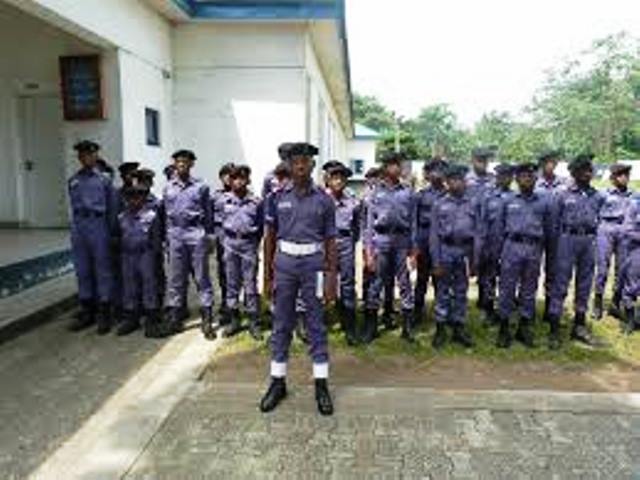Military Universities in Nigeria: Full List
Military universities in Nigeria are those universities under the Nigerian military. Unlike the conventional schools around, the Nigerian military universities aside providing academic training to its students, it also equips officer cadets with the necessary military skills, training and mindset required to fit in as officers of the Nigerian Army, Navy or Air force. They are military inclined unlike the vast majority of the universities that are civil inclined.

Contrary to popular belief, military universities in the country are not meant for only cadets or officers of the Nigerian military. In fact, one of the schools wants to have only 25 percent of its students to be military cadets/officers and the remaining 75 percent as civilians.
Nigeria currently have two (2) military universities – The Nigerian Defense Academy (NDA) Kaduna and the Nigerian Army University, Bui located in Borno State.
Nigerian Defense Academy (NDA)
The Nigerian Defense Academy (NDA) Kaduna is the first, most popular and most sort after military school in the country. NDA was established in March 1964 as a reformation of the British run Royal Military Forces Training College (RMFTC), which had been renamed the Nigerian Military Training College (NMTC) on independence.
This university has trained officer corps of the Nigerian Army, Navy and Air Force. Though it was established in 1964, it wasn’t until 1985 before it started providing undergraduate programs to officers in training. As it stands now, the NDA now offers M.Sc. and PhD programmes.
Initially, the NDA trainers were mostly officers in the Indian Army. The NDA grew to an all Nigerian training staff only in 1978. In 1981, itself began training bilateral training of foreign militaries. Due to the fact that the first trainers in this school are Indians, its first commander is an Indian with the name Brigadier M.R. Varma.
Duration of training at the Nigerian Defence Academy is 5 years, which include 4 years of academic studies and 1 year of military training. Some of the notable Alumni of the Nigerian Defence Academy among others include:
- Abdulrahman Bello Dambazau, former Chief of Army Staff
- Alexander Ogomudia, former Chief of Defence Staff & Chief of Army Staff
- Muhammadu Buhari, President of Nigeria and former Military Head of State
- Azubuike Ihejirika, former Chief of Army Staff
- Gideon Orkar, March 1990 coup leader
- Tukur Yusuf Buratai, Chief of Army Staff, Nigerian Army
- Maxwell Khobe, former ECOMOG Peacekeeping Force Commander and Chief of Defence Staff, Sierra Leone
- Sultan Sa’adu Abubakar, Sultan of Sokoto
- Sambo Dasuki, National Security Adviser
- Owoye Andrew Azazi, former Chief of Defence Staff & Chief of Army Staff
- Victor Malu, former Chief of Army Staff
- Oladipo Diya, former Chief of Defence Staff
- Ibok-Ete Ekwe Ibas, Chief of Naval Staff, Nigerian Navy
Nigerian Army University Biu (NAUB)
The Nigerian Army University Biu (NAUB) is the second military university in Nigeria and also the newest. This university was established in 2018 making it one of the most recently established university in Nigeria. The University’s focus is to strengthen the Nigerian Army and the nation through sound and innovative uses of science and technology.
According to the information provided on NAUB website (www.naub.edu.ng), the vision of the army university is to become a solution centre in technology, research and development for the promotion of self-reliance, creativity and innovation in addressing the challenges of the Nigerian Army, the military as well as the nation.
The university is on a mission to develop highly skilled military and civilian manpower with distinctive competence capable of providing technological solutions to the problems of the Nigerian Army, the military and the nation.
The university plans having both civilians and the military as students. According to the university, they plan having about 75 percent of their students as civilians while the military takes up the remaining 25 percent. The staff of the university is also mixed with both civilians and the military.
The University has seven faculties and they are: Science, Technology, Military Technology, Social Sciences, Environmental Studies, Administrative and Management Studies, Military Policy, Logistics and Strategies.
Looking at the list of faculties, you will agree that one of the things that set this school aside is the introduction of military inclined faculties.
Like it was stated in the beginning, this school is still in it infantry state, it currently does not have any alumni.

I will like to be a military student